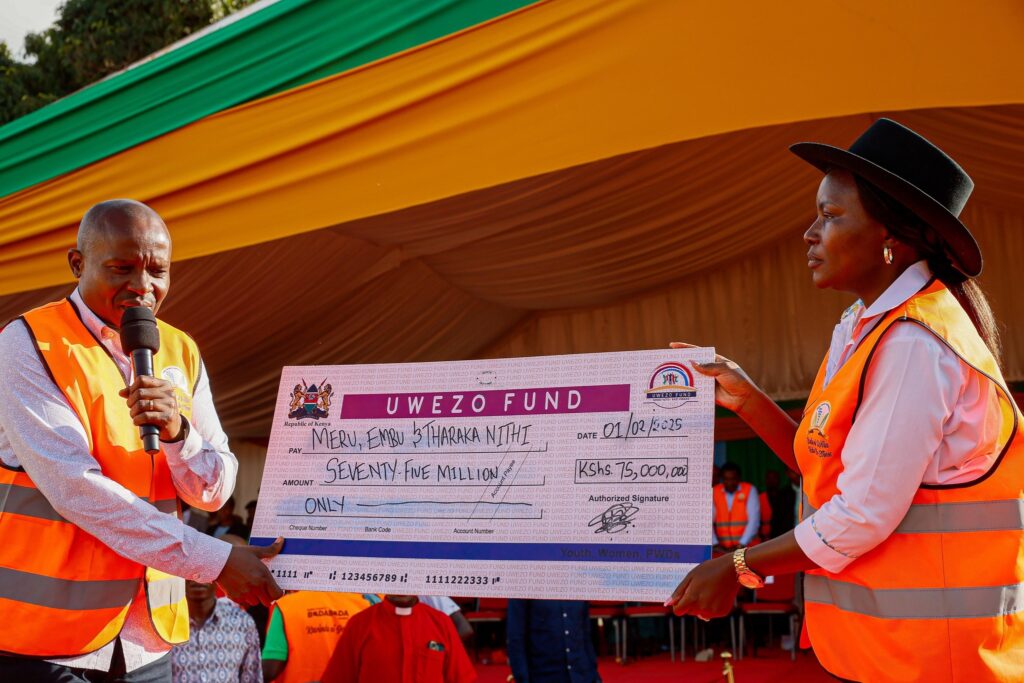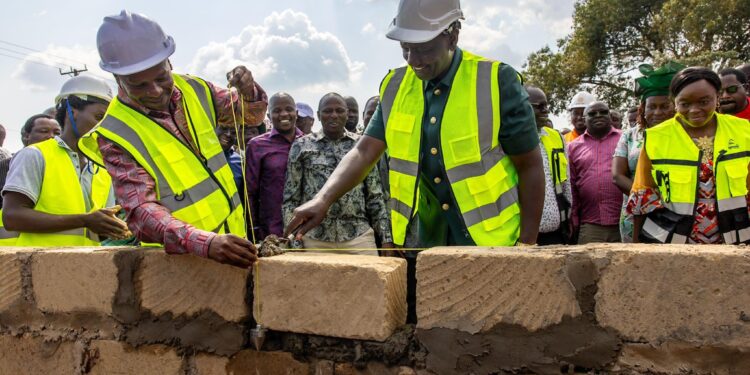Deputy President Kithure Kindiki has emerged as a steady, development-focused leader determined to shift Kenya’s political landscape from endless regional contestations to national progress. Unlike his impeached predecessor, Rigathi Gachagua, whose political approach was anchored in tribal and regional alliances, DP Kindiki has been firm in advocating for unity and a shift away from divisive politics. He insists that this is not the time for politicking but rather a moment to fulfill President William Ruto’s development agenda, ensuring every region benefits from economic growth and national transformation.
Speaking at Aguthi Primary School grounds in Nyeri County on January 31, 2025, DP Kindiki assured wananchi that President Ruto’s administration is focused on delivering on its promises to Kenyans. While addressing a large crowd in Embu on February 1, he emphasized that supremacy battles among politicians should take a backseat to allow for meaningful development. His tour across the Mt. Kenya region, including planned visits to Meru, signals a new direction in leadership—one that prioritizes tangible economic progress over regional political dominance.
At Runyenjes Stadium in Embu County, where thousands of boda boda riders gathered for the launch of a strategic plan, DP Kindiki and other leaders deliberately avoided confrontation and instead centered their discussions on economic empowerment. With over 10,000 registered riders in Embu County, the sector remains a crucial employer for young people. DP Kindiki reiterated that President Ruto’s administration is committed to stabilizing the economy and investing in job-creating sectors to uplift millions of Kenyans from financial hardship.
The Deputy President further explained that the government now has the necessary resources to complete stalled infrastructure projects and initiate new ones. He urged leaders to focus on service delivery, emphasizing that the time for elections will come, but for now, development must take priority. His approach starkly contrasts with that of the former Deputy President, whose leadership centered on regional politics and selective engagements that alienated other parts of the country.
Still on post-Covid recovery efforts, DP Kindiki acknowledged that former President Uhuru Kenyatta’s administration had implemented important initiatives, but the Covid-19 pandemic had severely disrupted the economy. He highlighted that President Ruto took office at a time when the country faced economic distress, with inflation soaring and the Kenyan shilling weakening. However, he noted that economic conditions have improved, the shilling is strengthening, and inflation is stabilizing, creating a conducive environment for investment and economic growth.

DP Kindiki further assured Kenyans that with the economy now stabilizing, the government is rolling out major projects, including road construction and rural electrification. He stated that infrastructure remains a top priority, as it plays a crucial role in connecting farmers, traders, and businesses to markets. His leadership style reflects a pragmatic approach—one that focuses on sustainable development rather than unnecessary political engagements that slow down progress.
Addressing healthcare concerns, DP Kindiki acknowledged the challenges facing the Social Health Insurance Fund (SHIF) and reassured Kenyans that the government is taking steps to resolve them. He mentioned ongoing adjustments to ensure fairness, particularly for informal sector workers such as boda boda riders, who had raised concerns over high contribution rates. “As a listening government, we will continue to refine policies to serve Kenyans better,” he stated, affirming the administration’s commitment to public welfare.
DP Kindiki’s message of development over politics was echoed by Embu Governor Cecily Mbarire, National Assembly Majority Leader Kimani Ichung’wa, and Presidential Advisor Moses Kuria, among other leaders present. They urged wananchi to support the government and avoid being swayed by opposition rhetoric. Governor Mbarire emphasized that working with the government is the surest way for Mt. Kenya and other regions to secure key development projects. She urged leaders to focus on delivering results rather than engaging in unnecessary political fights.
The Deputy President’s stance also aligns with President Ruto’s broader strategy of engaging regions that exhibit organized and progressive leadership. The administration has been actively working with areas like Nyanza and Western Kenya, where leaders have demonstrated a commitment to economic growth and tapping into their regions’ untapped potential. DP Kindiki pointed out that these regions are benefiting from increased government investment because their leaders prioritize development over political theatrics.
As DP Kindiki continues his countrywide engagements, his leadership is setting a new tone in Kenya’s political landscape. By prioritizing service delivery and shunning unnecessary political wars, he is helping President Ruto steer the country towards economic recovery and growth. His insistence that “time for politics will come later” signals a shift from traditional Kenyan politics to a more results-driven governance model—one that seeks to uplift all Kenyans, regardless of their political or regional affiliations.











